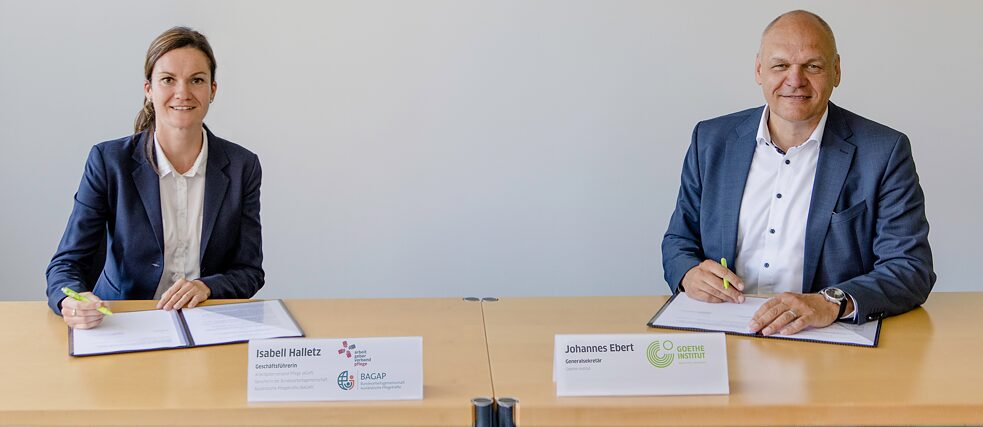Partnership agreement between the Goethe-Institut, AGVP and BAGAP
A good preparation

The Goethe-Institut has created another opportunity to develop the linguistic and intercultural competencies of foreign skilled workers by signing a partnership agreement with the Arbeitgeberverband Pflege (AGVP, Employers’ Association for the Care Industry) and the Bundesarbeitsgemeinschaft Ausländische Pflegekräfte (BAGAP, Federal Working Group for Foreign Care Workers).
Germany will need as many as three million skilled workers by 2030. In the nursing professions alone, there are currently ca. 30,000 vacancies. The private and public health system relies on qualified migrants. This is where the Goethe-Institut comes in with its programmes for the qualification of skilled workers through the signing of the partnership agreement with the AGVP and BAGAP on 21 July 2021.
“The partnership agreement reflects our common goals,” explained Johannes Ebert, General Secretary of the Goethe-Institut, at the signing ceremony. “We want to give foreign care workers a well-grounded linguistic and intercultural preparation so that they can start their working lives here successfully. We also want to work together to organise the migration of skilled workers sustainably, under fair conditions for all those involved, including their countries of origin.”
Isabell Halletz, general manger of the AGVP und spokesperson for the BAGAP said: “Language opens the door to participation in society and successful integration. That’s why we have combined our strengths with the Goethe-Institut to prepare the foreign care workers of tomorrow in the best possible way, linguistically and interculturally, for their jobs in Germany.”